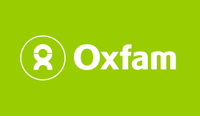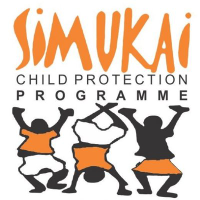INVITATION FOR EXPRESSION OF INTEREST - Conducting a Corruption Risk Assessment (CRA) on the Provision of Maternal Health Care Services in Zimbabwe
Job Description
1. About TI Z
TI Z is a non-profit, non-partisan, systems-oriented local chapter of the international movement against corruption. Its broad mandate is to fight corruption and related vices through integrity networks in line with the Transparency International Global Strategy. TI Z believes corruption can only be sufficiently tackled by all citizens including people at the grassroots level.
2. Background to the Call
TI Z is commissioning a study into corruption risks in the provision of maternal health in contemporary Zimbabwe. Corruption remains a major challenge to human development in Zimbabwe, fuelling inequality and undermining citizens’ attainment of their socio-economic rights, particularly the right to health. This also impacts the attainment of specific targets of the Sustainable Development Goals (SDGs), in this regard target 3.1, on reducing the global maternal mortality ratio to less than 70 per 100,000 live births by 2030.
Previous studies by TI Z have highlighted numerous issues on the occurrence and impacts of corruption in the provision of public health, including maternal health, services in Zimbabwe. A 2021 study by TI Z on corruption in the public health sector in Zimbabwe noted various forms of corruption occurring in the sector, namely public procurement malpractices, the theft and sale of essential medicines on the grey market, bribery, favouritism, and false referrals. A follow-up corruption risk assessment (CRA) to deepen knowledge on the grey market for publicly procured medicines conducted in 2023 identified the procurement process in the medicines supply chain, as a major priority area deserving attention. The study showed that the evaluation and selection of bids and contracting of suppliers stood out as the areas with the highest risk and impact of corruption among others. Whilst corruption affects all sectors and has adverse effects on a country’s political, economic, and social development, its impact on the health sector is the difference between life and death. In this context TI Z is convinced that it impacts women and children, who are statistically the major recipients of care in public health facilities which provide services to most citizens, ultimately limiting maternal health outcomes.
Duties and Responsibilities
3. Overall Objectives
The primary objective of this corruption risk assessment in maternal health services provision is to improve maternal health outcomes in Zimbabwe by identifying vulnerable points in the provision of maternal health services, where the likelihood and impact of corruption are high. The secondary objective is to identify respective stakeholders that need to be engaged and recommend practical action points to be taken to mitigate corruption in maternal health services.
Specific objectives of the Assessment are as follows:
a. Identify Corruption High-Risk areas at various points of maternal health services, from the point of service delivery; level of institutional management and policy levels (such as resource allocation and disbursement at the central government level, the procurement of maternal health services, equipment and drug supplies).
b. Identify the overall Public Finance Management (PFM) strengths, weaknesses and gaps in Zimbabwe’s institutional framework (including country’s goals, strategies and plans) for delivering maternal health outcomes
c. Map out key actors involved in the corruption and the main drivers of corruption at the various identified points.
d. Explore corruption mitigation measures that could help to reduce corruption.
e. Map out the key stakeholders that could be engaged to mitigate corruption.
f. Recommend, using comparative best strategies, practical actions that can be taken to mitigate corruption in maternal health services and strengthen maternal health services procurement.
4. Deliverables
1. A detailed analytical report (no more than 30 pages, including the executive summary), using the organisation's standard report template, identifying the various vulnerable points in the provision of maternal health services where the likelihood and impact of corruption is high.
2. A detailed set of practically actionable recommendations on the best strategies to mitigate corruption in maternal health services procurement and other points of the value chain.
3. Brief Stakeholder Mapping Report, listing various stakeholders who have the potential to play effective roles in maternal health corruption mitigation and explaining their potential roles.
5. Timeframe
The anticipated level of effort for the entire process is 15 working days with the final product expected by 15 November 2024.
Qualifications and Experience
6. a. Education
Interested consultants should have a minimum of the following:
• A master’s degree in public health (with a focus on Health Policy and Management), Health Systems, Health Economics and Health Policy, Global Health, Public Procurement, Business Administration (MBA) with a concentration in Healthcare Management, Development Studies, Public Administration, or Political Science/Governance.
b. Technical experience and requirements
• Demonstrated experience in conducting Political Economy Analysis (PEA) on various development topics, including Corruption Risk Assessments.
• Knowledge of and/or proven expertise in public policy, Health Economics, Supply Chain Analytics, Public Health, Healthcare Administration, Health Research, Public Administration, Governance or related areas
• Demonstrated experience in use of research data analysis software (for both quantitative and qualitative data)
• Written and Visual Storytelling and impeccable verbal communication skills.
How to Apply
7. Interested candidates must submit the following documents/information to demonstrate their qualifications:
• Team member CVs/profiles highlighting past experience in similar projects/assignments and indicate at least three references;
• A four-page expression of interest explaining:
o why they are the most suitable to conduct the assignment
o brief methodology/roadmap on how they will approach the assignment ethically, including engaging key agencies or departments for evaluating and approving research protocols in public health
• A detailed budget explaining the cost of the data capture, collation and analysis using the appropriate tools. This includes any fees involved in applying for the necessary approvals for the research protocol and peer review process. Please note that financial proposals will be evaluated based on the available budget for the assignment and that TI Z will negotiate with the best consultants;
• At least one example of a past peer-reviewed research paper which directly contributed to policy advocacy;
• Valid and current Tax Clearance certificate
8. Contact Details
Hard copy documents must be submitted in a sealed envelope, clearly marked ”Maternal Health Research” and must be hand-delivered to 96 Central Avenue, Harare. Alternatively, documents and links can be emailed to [email protected]. The closing date for submissions is COB 9 October 2024 and no documents shall be received or entertained after this due date.
Similar Listings

Baseline Assessment for the project, “Integrated Emergency Response for El Niño Drought Affected Communities in Zimbabwe,
Oxfam — Harare

CALL FOR EXPRESSION OF INTEREST FOR CONSULTANCY SERVICES FOR THE DESIGN AND IMPLEMENTATION OF A CAPACITY DEVELOPMENT PROGRAM FOR SIMUKAI CHILD PROTECTION PROGRAMME
Simukai Child Protection Program — Harare

Terms Of Reference
Oxfam — Harare

Terms Of Reference
Oxfam — Harare

Location: Harare
Company: Transparency International Zim
Expiry Date: 2024-10-09 00:00:00
